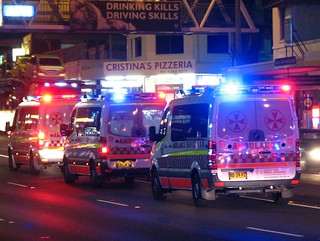11 July 2014. Medical researchers at University of Pittsburgh show mobile phone text messages can provide feedback to young adults with a history of alcohol abuse that cuts their binge drinking. Findings from the team led by emergency medicine professor Brian Suffoletto were published online earlier this week in the journal Annals of Emergency Medicine.
Suffoletto and colleagues were seeking a way of influencing young men and women, age 18 to 25, who already visited hospital emergency rooms as a result of hazardous drinking behavior. Their study tested the use of short message service, or SMS, texts as a medium for catching these young adults before they made their weekend drinking plans.
The authors cite data showing about half of the estimated 50,000 young adults each day visiting emergency departments have hazardous drinking behaviors. While steps like screening and referrals for treatment can be done while the individuals are in the care of clinicians, only a minority of comprehensive full-time trauma centers (15%) take these steps, and even then, report mixed results.
The need, say the authors, is for a way for clinicians serving this population to communicate with young adults about their drinking behavior away from the emergency department. Mobile phones offer a medium for reaching this age group. A Pew survey in 2011 shows 95 percent of young adults own a mobile phone, and nearly all (97%) of these phone owners send or receive text messages, averaging about 50 texts a day. Other studies show text messages have at least the potential of influencing health-related behaviors, including smoking cessation.
The Pittsburgh team recruited 765 individuals, age 18 to 25, who visited emergency rooms in western Pennsylvania, and with a history of hazardous drinking behavior. Participants in the study were randomly divided into three groups, receiving for 12 weeks one of two types of message interactions, or a control group that received no message at all.
– In one test group, participants received a text message asking about their drinking plans for the weekend. If the participant indicates heavy drinking — more than 4 or 5 drinks in a 24-hour period — he or she received a message expressing concern and suggesting they set a goal to cut down on drinking that week. If the individual responded positively to the feedback, he or she received positive reinforcement. If the person ignored the message or refused to set a goal, he or she was asked to think about their decision.
– Participants in a second test group received a text message asking about drinking plans, with no feedback on their responses.
After 12 weeks, study participants receiving the initial query message and feedback reduced their binge drinking occasions from 3 or 4 on average before the study to 1 or 2. About 1 in 7 (15%) of those receiving the full array of texts reported no occasions of drinking at all. In addition, the number of drinks per day consumed in this group was reduced by 31 percent.
Among participants receiving no messages, heavy drinking occasions increased by 39 percent after 12 weeks. Participants receiving only the initial query message likewise increased their binge drinking occasions, but by a smaller percentage (10%).
The authors believe the results show hospital emergency rooms can keep in touch with patients exhibiting hazardous behavior with inexpensive and ubiquitous mobile phone technology. “The emergency department,” says Suffoletto in a university statement, “provides a unique opportunity to screen young adults for drinking problems and to intervene to reduce future risk.”
Read more:
- Outpatient Safety Net Harnesses Electronic Health Data
- Project Underway to Enable Mobile Health Data Collection
- App Measures Health Status with Basic Smartphone Technology
- Tablet App Provides Feedback, Improves Drug Adherence
- Most Americans Favor Contraceptives Required in Health Plans
* * *


 RSS - Posts
RSS - Posts